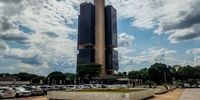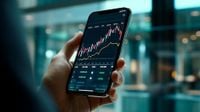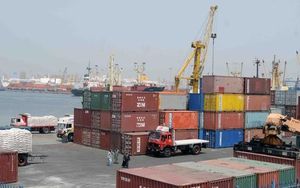The Central Bank's Monetary Policy Committee (Copom) has made headlines by deciding to increase the Selic, Brazil's basic interest rate, by 1 percentage point, raising it to 14.25% per year, an adjustment that economists had widely anticipated. This marks the highest level of the Selic since October 2016, a significant moment as it reflects ongoing concerns about inflation and economic stability amidst a complex global backdrop.
On March 19, 2025, the Copom’s decision resulted in a unanimous vote among its nine members, emphasizing a collective recognition of the challenges facing Brazil's economy. In a statement released after the decision, the committee noted, "O comitê segue acompanhando com atenção como os desenvolvimentos da política fiscal impactam a política monetária e os ativos financeiros. A percepção dos agentes econômicos sobre o regime fiscal e a sustentabilidade da dívida segue impactando, de forma relevante, os preços de ativos e as expectativas dos agentes" (The committee continues to closely monitor how developments in fiscal policy impact monetary policy and financial assets. The perception of economic agents regarding the fiscal regime and the sustainability of debt continues to significantly impact asset prices and the expectations of these agents).
The context leading up to this adjustment includes rising food and energy prices and increasing uncertainties surrounding the global economy. As inflationary pressures persist, the Copom signaled the likelihood of future rate hikes, stating that while further increases may be forthcoming, they will accompany smaller adjustments based on economic assessments leading into the next meetings.
The current economic landscape showcases a mix of warming activity supplemented by signs of moderation in growth. The Copom’s latest reports indicate that inflation continues to rise, with the Broad National Consumer Price Index (IPCA) reaching 1.48% in February, contributing to an accumulated increase of 4.87% over the past 12 months, exceeding the tolerance limit set for inflation.
The increase in the Selic is expected to have immediate impacts on various types of investments. For instance, higher interest rates correlate closely with the returns from fixed-income investments. The Copom’s adjustments have a pronounced effect on savings accounts, government bonds (Tesouro Selic), and certificates of deposit (CDBs), which will see their yields increase. Analysts project that an investment of R$10,000 in Tesouro Selic could yield approximately R$11,172.32 over a year due to the elevated rates.
With the Selic rate now at 14.25%, the dynamics within the investment market are set to shift, leading to increased competition among savings options. For example, savings accounts are expected to offer a return of approximately 7.23%, translating to R$72.30 for an investment of R$1,000 over a year, making them less competitive compared to the projected returns on CDBs, which can yield between R$84.90 and R$130.20, depending on the institution and terms.
Furthermore, looking ahead, the Copom's communication indicates that the upcoming meetings will be crucial in determining the trajectory of Brazil's monetary policy. With the next meeting slated for May, markets are watching closely for indications of how the committee will navigate the ongoing inflation challenges while supporting economic growth.
In summary, the recent hike in the Selic has sparked a flurry of analysis in investment circles, and the implications of this decision extend beyond mere interest rates. As Brazil gears up for another round of economic adjustments, the dual challenge of promoting growth while controlling inflation remains complex and necessitates careful monitoring of both domestic policies and external influences.







